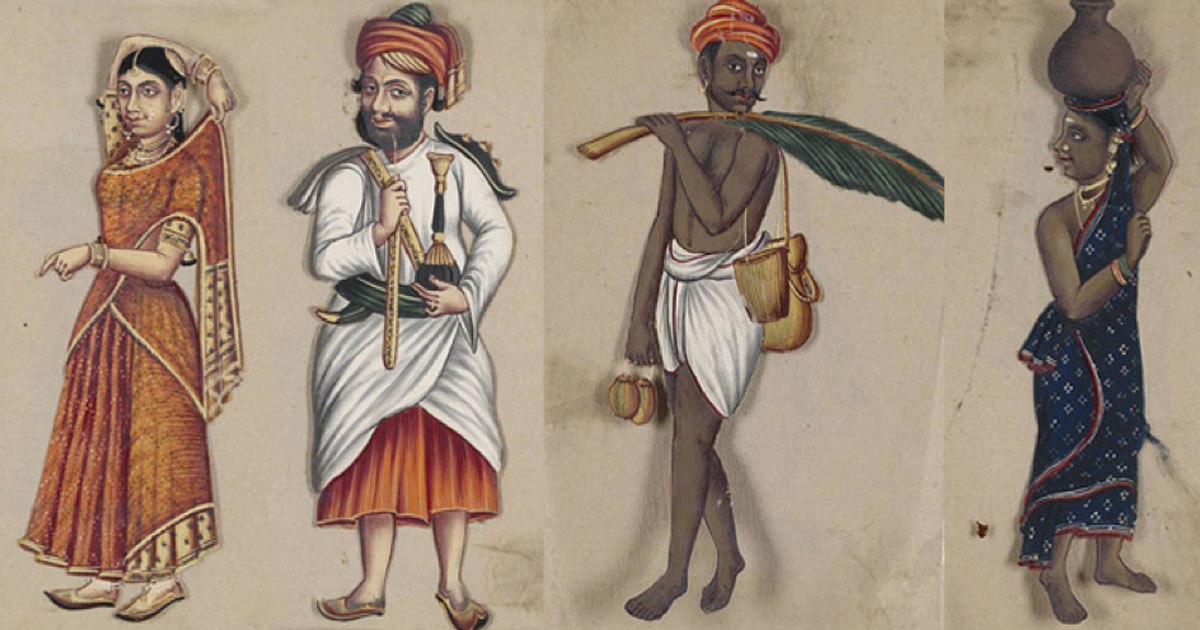- Visitor:27
- Published on:
The Sentimental View of Education
In this excerpt, Dalrymple analyzes how the sentimental view of education has ruined the entire system. He quotes Steven Pinker and his influence over British education in the past few years. He tells us how even right ideas can wreak havoc if implemented in wrong domains and with wrong intent. What he gives us is a view of sentimental moralising. This is an excerpt from the book ‘Spoilt Rotten! – The Toxic Cult of Sentimentality’.

An unexpected and powerful contemporary ally of educational romanticism, and sentimentality, is contemporary linguistics, a supposedly scientific discipline. The locus classicus of the sentimental (and politically correct) conclusions drawn from the science of linguistics is Steven Pinker’s book The Language Instinct. Almost certainly, this is the most influential book on the subject ever written, reprinted dozens of times; and since it may be assumed that those who read it are at the upper end of the educational spectrum, it may be assumed to have had an effect.
It draws unjustified and noxious conclusions from what may very well be a correct view of the development of language in individual children.
The part of the theory that may be correct is this: that children are biologically preordained to develop language, that their brains are genetically determined and constructed in such a fashion that, at a certain stage in their lives, they develop language. Furthermore, the language they develop will be rule-governed, and this applies whatever language they learn, whether it be the argot of the slums, the drawl of the aristocrat, or the chatter of women at a Sahelian well.
So far, so good. This may all be so. The evidence suggests that, if for reasons of social isolation, a child has not learned to talk by the age of six, he will never learn to talk adequately, suggesting that the acquisition of language is indeed biologically programmed.
But then further unjustified and dangerous conclusions are drawn. Since all children learn language spontaneously, a language that is moreover as obedient to grammatical rules as any other language and one that by definition is suited to and adequate for life in the society in which they grow up, no special training in their native language is necessary. This is because no form of language is inherently superior to any other. Language, says Professor Pinker, is not a cultural artifact at all, and therefore cannot be taught. Prescriptive grammar is a ‘hobgoblin of the schoolmarm’; a standard language (such as the one in which he himself writes) is a language ‘with an army and navy.’
All references to standard language and to prescriptive grammar in the book are derogatory, though sometimes infused with a hint of irony, the kind of irony that a metropolitan sophisticate uses when speaking to or of a naïve, unsophisticated and ignorant farm labourer. Among other reasons a standard language should not be taught is that the standard language itself changes with time; what is deemed ‘correct’ usage today is deemed ‘incorrect’ tomorrow, so is not worth learning. It is so much wasted effort; the very fact of change undermines the claim to correctitude.
In Pinker’s view, at least as expressed in his book though not as expressed in his life, there are no mute inglorious Miltons resting in country churchyards, because everyone spontaneously develops the language that is adequate to his needs. And therefore, as he says at the beginning of his book, quoting Oscar Wilde, ‘nothing that is worth knowing can be taught.’
As it happens, there is a great deal of moral exhibitionism in this, an invitation to the reader to exclaim, ‘Goodness, how broadminded and democratic this clever and highly-educated man is!’ But it is also profoundly insincere. It is highly unlikely that he would wish his own children to grow up speaking only what he calls Black English Vernacular, the adequacy of whose expressiveness he elsewhere extols; and when I wrote an article attacking his view of the matter, pointing out that, among other things, his view, if taken seriously, necessarily enclosed people in the mental worlds into which they had been born, he replied ‘Of course people should be taught a standard language.’ This proved that he had either changed his mind on the matter (how else they were to be taught than by the much-derided schoolmarms he did not condescend to explain), or that he had never really believed what he had written in the first place.
This is further suggested by the very dedication of his book, which reads: ‘For Harry and Roslyn Pinker who gave me language.’
If Professor Pinker was grateful because they gave him language in the purely biological sense, he might as well have written ‘For Harry and Roslyn Pinker who gave me urine’ or ‘For Harry and Roslyn Pinker who gave me faeces,’ which are just as biological as language and perhaps even more biologically necessary. But I don’t think he did mean this.
In fact, he is simply giving a new, supposedly scientific gloss to old romantic conceits about childhood, conceits that are almost certainly at heart a denial and repudiation of the religious doctrine of Original Sin. I need not recapitulate the apostolic succession of romantic educationists here (Rousseau, Pestalozzi, Froebel, Montessori, Dewey, Steiner, say nothing of their acolytes), but will confine myself to quoting one of Professor Pinker’s intellectual — or perhaps, more accurately, emotional — forebears, the social reformer Margaret Macmillan. She did much good, especially for the physical well-being of children, but much harm also; she wrote ‘Early childhood is a vital and momentous period in education but it is not the time for accuracy…’ By the extension of her principles down the ever-slippery slope, the time for accuracy was never to arrive.
Recently, for example, an academic was reported in The Times to have suggested that certain spelling errors were now so common among pupils and students that the time had come to accept them as correct, the pupils and students being incorrigible. The academic used every Pinkerian argument: that the errors did not make the meaning of the words indecipherable, that spellings changed anyway over time, etc. etc. Perhaps unsurprisingly, the academics discipline was criminology, for criminologists have long been to crime what Marshal Petain was to Hitler. (Professor Pinker’s main innovation was the suggestion that, where language was concerned, there was no such thing as accuracy; or, if there was, everyone achieved it merely by virtue of vociferating.)
Professor Pinker tells us that people talk as spiders spin webs, though he is not so foolish as to concede that there are differences; but he also implies that genius inheres in all of us. He does this by quoting the anthropological linguist Edward Sapir, who wrote, ‘When it comes to linguistic form, Plato walks with the Macedonian swineherd, Confucius with the head-hunting savage of Assam.’ A three year-old, says Professor Pinker, is a grammatical genius. We are all equal, and equal to the best: and all without any training, let alone effort!
In the circumstances, it is hardly surprising that some have come to the conclusion that not only does training and education per se fail to promote good, it does active harm by inhibiting the natural genius and creativity of children. Here is Margaret Macmillan again:
“The whole question of mind development is concerned in the various kinds of movement natural to, or imposed upon, children… Imagination is of motor origin… Children… learn to read, to write… but not to initiate, to adapt their resources freely. Shakespeare… Bunyan…. where are they today?”
Now everyone knows that Shakespeare was a man of small Latin and less Greek: but the word is small, not non-existent. If he went to Stratford Grammar School he would almost certainly have received a training that was rigorous to the point of cruelty, but which obviously filled his mind with something useful.
The idea that training and knowledge are inimical to the natural genius that inheres in us all has spread to some surprising places.17 While I was still practising as a doctor, I had a number of patients who were art students. I asked them whether they ever went to art galleries, and they said that they did not. They expected their natural talent to flourish unaided by the inhibitions induced by formal training or by acquaintance with the efforts of past artists: indeed, it was their definition of talent that it should spring spontaneously from their well of genius. Total originality, total disconnection from anything that anyone had ever done before, was their goal, and not surprisingly transgression was their means.
Those young people who said they wanted to be journalists were much the same. Asked what they read, they found the question puzzling: did I not realise that they wanted to be writers, not readers? The notion that writers needed to read was to them very strange. Surely to do so would destroy their originality?
There has, it is true, been a belated reaction to the natural consequences of what one might call ‘the play way’ or ‘feeling’ way of education. The attempt to fill minds otherwise innocent of information has resulted in indoctrination with sentimentalism. The only chemical of which children have heard is carbon dioxide because it is a greenhouse gas; they want to save the planet though they can’t find China on a map or define a contour.
They know that history has been a struggle between oppressor and oppressed because the historical episodes of which they are aware are the Atlantic Slave Trade and the Holocaust (not necessarily in that order). Recently, I met a young woman who was going to university to study history. I asked her what she was learning about and she replied that she was ‘doing’ the genocide in Rwanda.
Swallowing my doubts as to whether so recent an event should form part of the history curriculum for someone who might very well not be able to put the English, American, French and Russian Revolutions in chronological order, I asked her what she had read on the subject? Having myself once travelled through Rwanda, I had read a more than average amount on the subject, and I was curious. It turned out that the one source she could name was the film, Hotel Rwanda. I asked her what she thought of the situation in Burundi, Rwanda’s southern neighbour that is something of a mirror-image of Rwanda. She hadn’t heard of it, nor was she aware that both countries had been Belgian mandated territories (let alone the fact that they had been German colonies before that).
Thus it appeared to me that the history she was being taught was a form of sentimental moralising, a kind of declaration of personal virtue to the effect that killing lots of people for no good reason is wrong, a lesson that, even these days, hardly needs teaching since no one would argue otherwise.
I do not mean to say that the Rwandan genocide is not a subject for deep moral and psychological reflection; obviously it is. But there is a cheapness of its use here that means the difference between narrative history and soap opera is virtually effaced.
Read the previous part of the series here:
- 13 min read
- 0
- 0










